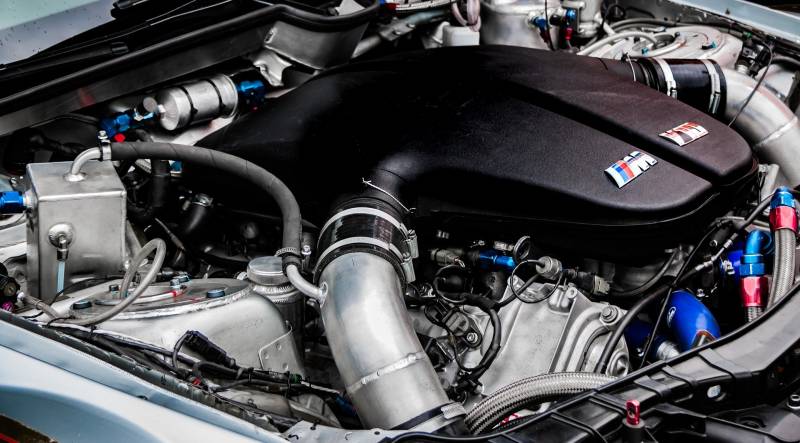Quick Navigation

If you’re a car owner, you know the struggle of dealing with batteries. Ever heard the quote ‘Never judge a book by its cover?’ That applies here. As easy as adding water to a battery sounds, it turns out to be just as complicated.
But what to do when the battery runs out of water? Is it an indication of destruction coming up ahead? Or is it any other regular battery problem?
The first thing you want to know is the reason for water running out of the battery. It may be due to factors like over-charging, sulfation, temperature increase, overall climate, etc.
We will discuss them in detail below. To know more regarding what happens if a battery runs out of water, stay tuned.
No Water In Car Battery
First things first, not all batteries require water to function correctly. Lead-acid batteries (though not the only one) are among the most commonly used water-dependent batteries in the market.
They are cost-effective, easy to manage, and long-lasting.
When we talk about no water in the car battery, we mean evaporation of water. Especially if you see a low water level sign on the car meter, it refers to unbalanced electrolyte and acidic battery cells, which results in sulphation and corrosion on the battery plates.
There are many reasons why there is no water in your car’s battery, which will thoroughly be discussed below.
As the plates deteriorate, the lead particle will beget brisker self-exudation of the battery and cause acid on the plates to crystallize.
Also, be careful never to add water to a battery before it is fully charged. It could cause the electrolytes to overflow and produce an excess of current, which is not desirable.
If the plates of the battery are dry, then that means it hasn’t been refilled in a long time, and there is no water in it at the current time. When adding water to the battery, remember to use distilled water every time and not tap water.
That’s because tap water may contain impurities that could mix with the battery chemicals in the wrong way and result in early corrosion of the plates.
Why Car Battery Runs Out Of Water?
As water is added to a battery, its electrolytic concentration rises. Similarly, if the battery runs out of water, its electrolytic level sinks along with a drop in water volume. And it would possibly stop working.
But to understand the aftermath of a battery running out of the water, you first need to know the reasons as to why that happens. Below is a brief detail of all reasons:
Over-charging
It is the most common ground for a battery running out of water. When a battery is over-charged, an excess of current is stored in it, which causes the electrolytic level to increase rapidly and abnormally.
An easy solution is to let the battery sit for some time and then repeat the same process.
Temperature
Temperature plays a significant role in water loss. That’s because the surrounding climate of the battery strongly impacts its capacity. In cold temperatures, you will notice reduced battery capacity and vice versa.
It can cause the dissolving of water in the battery and also cause premature aging.
See Also: Best Car Batteries For Hot Weather – Important Factors To Consider
Reduced Usage
Reduced usage also stands as another reason for water loss, especially in cars. When a car remains untouched or out of use for an extended period, the battery assumes no activity and goes into self-deactivation. It can also result in water loss in the car battery.
Battery Charger
An unmatched battery charger can also lead to water loss. It might be providing more or less voltage to the battery than required. It can result in the dissolution of water and destroy your battery in a couple of hours.
What Happens If Battery Runs Out Of Water

Is It A Complete Water Loss?
Suppose you check the battery after a couple of months and see no liquid in the battery, which indicates the absence of electrolyte and the battery’s unproductivity. In contrast to the low water level, the matter at hand requires more attention.
Simply stating, if a battery is empty of water, it will not work.
And in such cases, you need to get a new battery as your previous one has become irreparable and futile now.
Low Water Level
If the water level is low, then that means the water has been dissolved within the electrolyte and has become more concentrated. Such a case doesn’t require much consideration and is easy to solve as it only necessitates distilled water.
Adding distilled water will bring back its strength and volume. It’s as simple as that.
Life Duration
All in all, a battery with no water has fewer chances of sustenance.
If the water level is low, the problem is solvable but strongly impacts performance.
If a battery runs out of water, it will begin to self-discharge, cause premature aging, and possibly stop working. This is why it is said that proper care of a battery affects its life duration more than anything.
Conclusion
A battery can suffer water loss for many reasons, the most common being over-charging and lessened usage. Once a battery goes through this problem, its longevity and durability decrease. Meaning it’s only a matter of time till the battery stops working or (in extreme cases) lead to unfortunate outcomes.
Therefore, treat your car battery with proper care and make sure to check it every once in a while. It will save you a lot of stress and money.

With comprehensive experience in writing exceptional quality articles and blogs about cars and related stuff, Daniel is one of the finest bloggers and a hardcore car lover we have. He is an ASE certified technician with an across-the-board experience of 10 years in the industry. He could not help tinkering with anything he got his hands on from a young age, which led to his remarkable career in the automotive repair industry.
When he is not under any hood, you can find him on the water or in the woods to pursue his passion for hunting and fishing. He has been writing for multiple sectors and is a regular contributor to several publications.
He currently owns a Nissan 300ZX TT and a Pearl Yellow but plans to upgrade it to 550 HP. His favorites include the Koenigsegg CCX and Lamborghini Diablo 6.0 VT, but for him, the Ferrari 360 Spider is one of the sexiest cars that exists to date.
Being an avid world traveler, he has spent most of his time analyzing the automotive markets, latest technology, and local favorites to enhance his knowledge base. He is currently living in North Caroline, where it’s all about food and coffee and, of course, cars.






